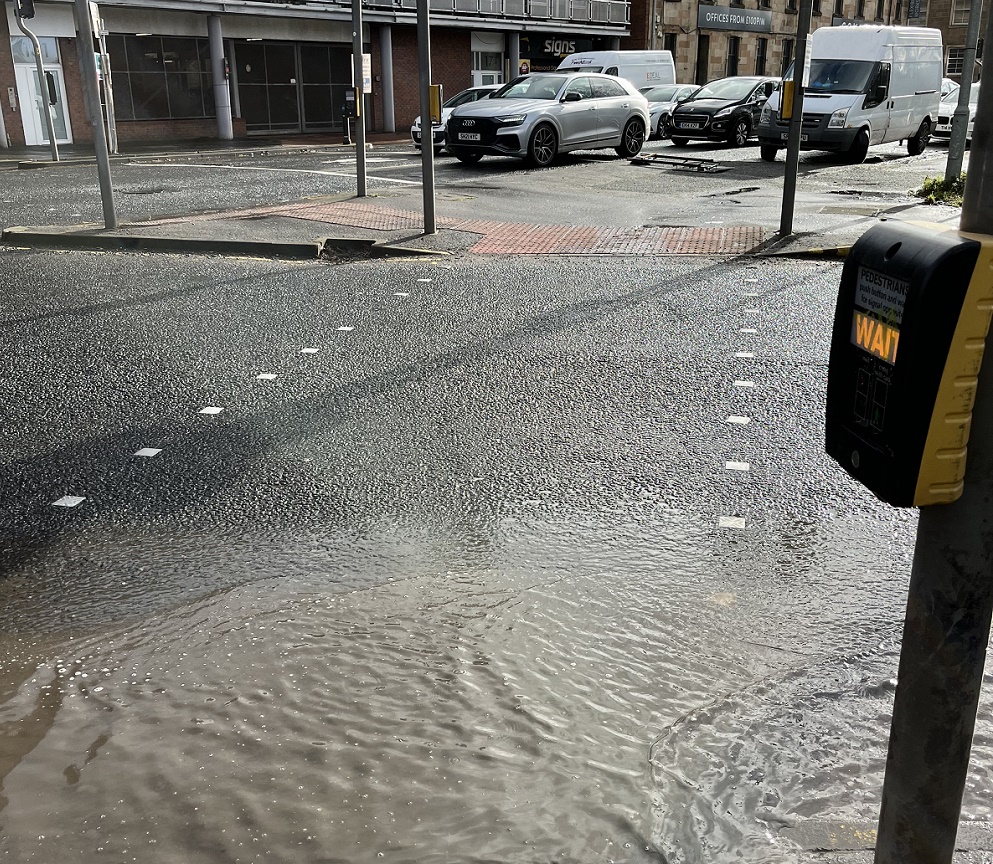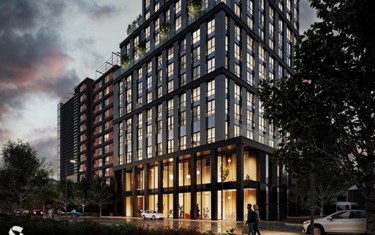Dr Andrew Hoolachan was awarded the RTPI’s Early Career Research Grant in 2022/3. He was awarded funds to understand how rain affects everyday life in cities and the impact this has on planning practice.
I was delighted to be awarded the RTPI’s Early Career Research Grant in 2022/3. The grant provides early career researchers with the opportunity to build a growing research agenda, influence practice, and help advance research in the discipline. Due to the size of the grant, it is ideal for those wishing to do a small-scale study that can be used to generate data and evidence for larger grants that early career researchers will no doubt want to work towards.
I was awarded funds to understand how rain affects everyday life in cities and the impact this has on planning practice. While all of Britain is in the same temperate climate zone, rainfall amounts vary greatly across the island. This is not acknowledged in planning policy and practice, yet the everyday experience of rain is fundamental to everyday life in wet cities like Glasgow where the study will take place.
Glasgow is one of the UK’s wettest cities with over 1200mm of rain per year over 170 days. This is reflected in its local popular culture: Billy Connolly sang “If it wusnae fur yer wellies, where wid ye be?”; Travis, the successful band from the late 90s, asked “Why does it always rain on me?”, both highlighting the permeability of rain in the everyday experience of the city. But Glasgow’s wet climate affects its built form too with significant issues encountered when it entered its Modernist age in the 1960s. The damp and mould made the high-rise towers in the Gorbals built by Basil Spence uninhabitable by the 1980s. Even today, underpasses beneath rushing overpasses of 1960s motorways frequently flood, compounding severance issues endemic around urban motorways.

A flooded pedestrian crossing in Glasgow
The city’s grand 19th century urban form is affected too, from iconic tenement blocks to imperial city centre townscapes. But it is people that the rain really affects. Are there free public spaces that are dry? Are people ‘rain aware’ before they leave the house in the morning, perhaps checking the weather forecast? How does the experience of rain differ in winter and summer, between warm rain and cold rain, light rain or dark rain? Does it shape mobility patterns? And what kind of people are affected by rain and in what ways? What might policy look like if it is drafted from a ‘rain perspective’?
The research therefore responds to unanswered questions in academic literature and will provoke conversations in practice. It raises issues about how planning departments are funded, the kind of skills and knowledge available to them, how community engagement is conducted, and the impacts that gender and culture have in everyday urban environments. The project uses a “citizen science” methodology which seeks to generate embodied, everyday knowledge of citizens using WhatsApp diaries. These forms of community engagement and community knowledge are not used at all in planning practice; they could be used to fill gaps in the traditional understandings of the city that planners use, such as flood maps, census data, and surveys.
The findings from this study will be published both as an RTPI report, as well as in two academic journals, so it can help with career progression within academia. Similarly, since knowledge exchange and impact are vital components of the Research Excellence Framework, the policy-facing angle of this research would fulfil these REF criteria. Finally, going forward, I hope to develop an Arts and Humanities Research grant proposal on the basis of this research. The award is therefore a vital stepping stone to develop further research.
Applications for RTPI Early Career Small Research Grants are open until 13 August:



